- Autumn Fire – Ricarda Huch
- Ringelnatz the Rhymer
- Hans Sahl in translation
- Morgenstern’s Magic
- Miracle of Mexico
- Surrealist, Lover, Resistant
- Storysongs/Chantefables
- How to be a Grandfather
- 33 Sonnets of the Resistance
- The Madness of Amadis
- The Big Story of the Lion
- Florentino and the Devil
- Loving by Will
Autumn Fire – Ricarda Huch
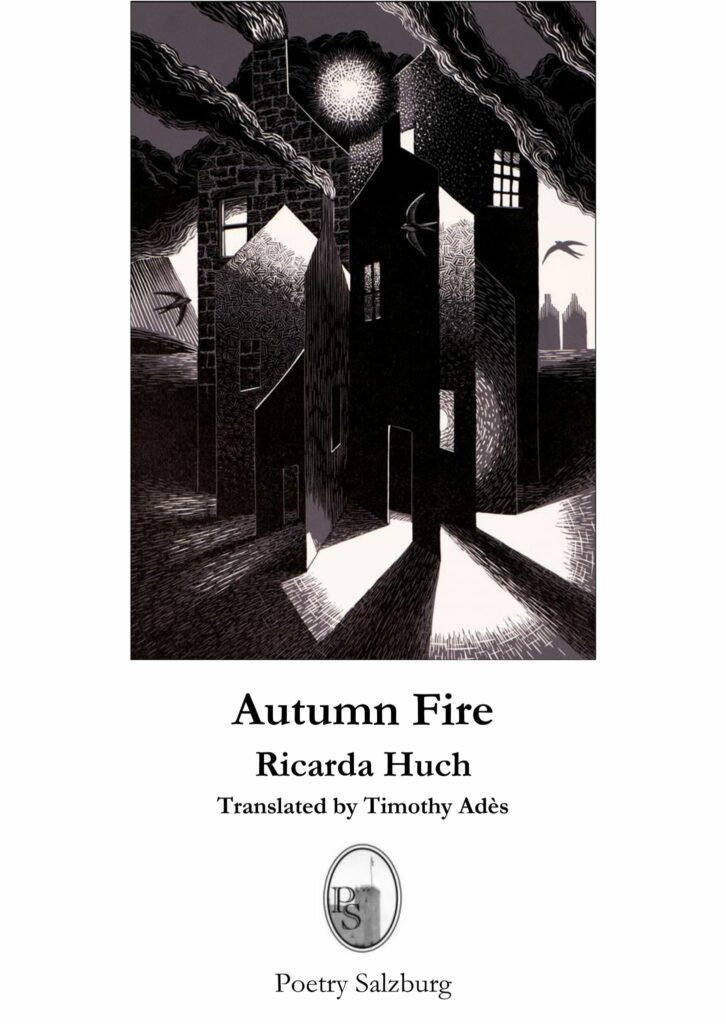
Ringelnatz the Rhymer
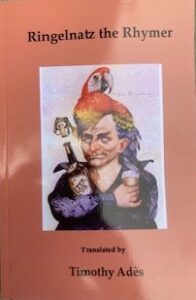
Hans Sahl in translation
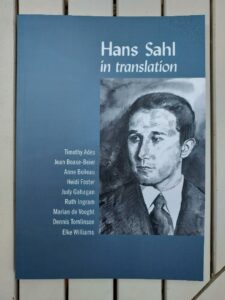
Read Kathryn Southworth’s review in Acumen.
Morgenstern’s Magic
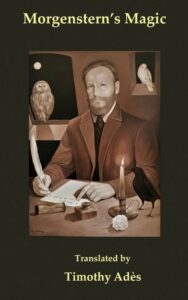
Morgenstern’s Magic is another bilingual book, and my first book from German. Christian Morgenstern (1871-1914) is best known for whimsy, with his weird animals and his comic characters Korf and Palmström. But there is much more to him, as is now clear for the first time in English. The portrait is by Anna Gestrich.
Miracle of Mexico
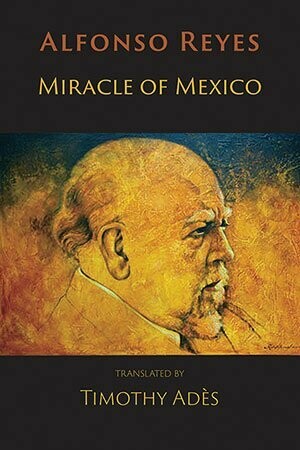
Alfonso Reyes, Miracle of Mexico
Shearsman Books, 2019. Bilingual Spanish/English.
Read praise for Miracle of Mexico on the critical appreciation page.
Surrealist, Lover, Resistant

Robert Desnos, Surrealist, Lover, Resistant
527 pages, bilingual text, his poems with my versions. The most exciting French poet of the last century! From Arc Publications.
Hear Beautiful After-Midnight, Compass Rose read on https://poeticvoices.live/portfolio/ades-timothy/
Read praise for Surrealist, Lover, Resistant on the critical appreciation page.
Storysongs/Chantefables
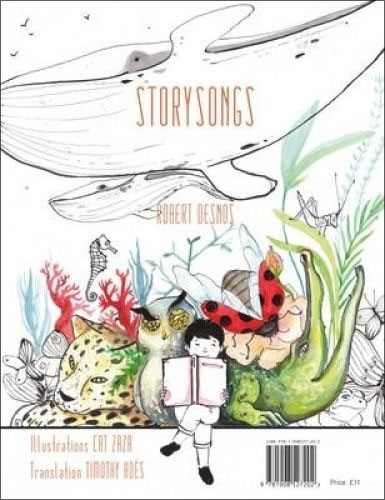
Robert Desnos, Storysongs/Chantefables
For good children to sing to any tune: with translations by Timothy Adès and illustrations by Cat Zaza. Agenda Editions, 2014. Fully bilingual, double–fronted book.
A charming book for children and adults to sing to any tune. The brilliant French poet and surrealist Robert Desnos, 1900-45, wrote these thirty Storysongs or ‘Chantefables’ in 1943, shortly before he was deported as a Resistant. They were quickly published, but he never saw them in print.
These little whimsies of the animal world have delighted generations of French children. Now at last they have been skilfully put into English by the translator-poet, Timothy Adès. This book is bilingual and is adorned with superb illustrations by the award-winning graphic artist Cat Zaza (Caterina Zandonella).
Read praise for Storysongs/Chantefables on the critical appreciation page.
How to be a Grandfather
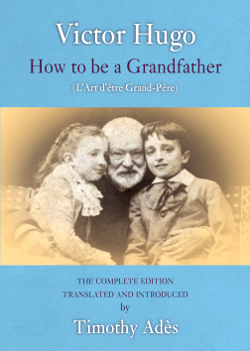
Victor Hugo, How to be a Grandfather
Hearing Eye, 2012
Victor Hugo remains France’s greatest poet. In the UK, he is known for his two famous novels; all the rest, including his vast output of wonderful poetry, is largely neglected. L’Art d’être grand-père (1877) was his last book of poetry, at a time when he had lost almost all his family except two young grandchildren. His musings on childhood, old age, politics, history, the natural and animal kingdoms, are poured into these poems with a torrential energy.
Appended are Hugo’s epic accounts of the great Napoleonic disasters: Moscow, Waterloo and St Helena.
Read praise for How to be a Grandfather on the critical appreciation page.
Contact me to find out where to buy a copy
33 Sonnets of the Resistance
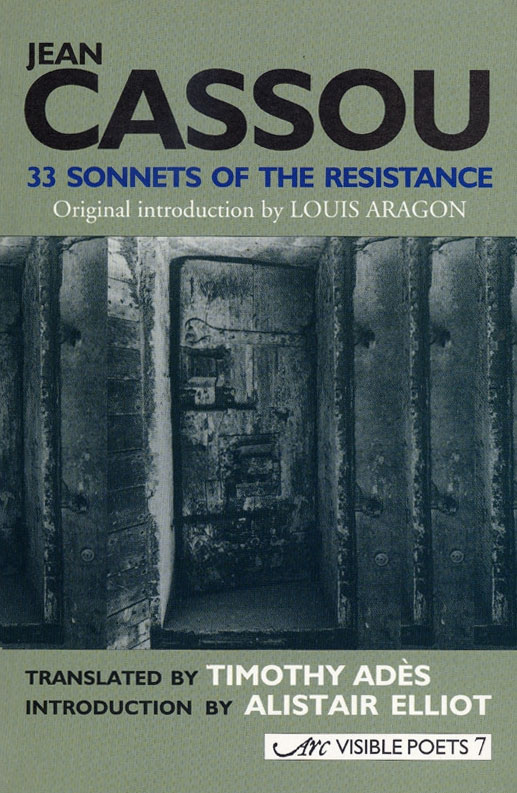
Jean Cassou, 33 Sonnets of the Resistance
Composed and memorised in a Vichy prison, Arc Publications, second edition, 2005; bilingual facing text; and other poems
Introduction by Alistair Elliot with an original introduction by Louis Aragon.
An extraordinary collection of sonnets composed while the poet was in solitary confinement and deprived of writing materials in a Vichy prison between December 1941 and February 1942, in a new prize-winning translation.
Through his fine and thoughtful translation of these sonnets and a selection of Cassou’s later poems, Timothy Adès gives us the opportunity of discovering an unfamiliar – and now historical – poetic voice.
Read praise for 33 Sonnets of the Resistance on the critical appreciation page.
The Madness of Amadis
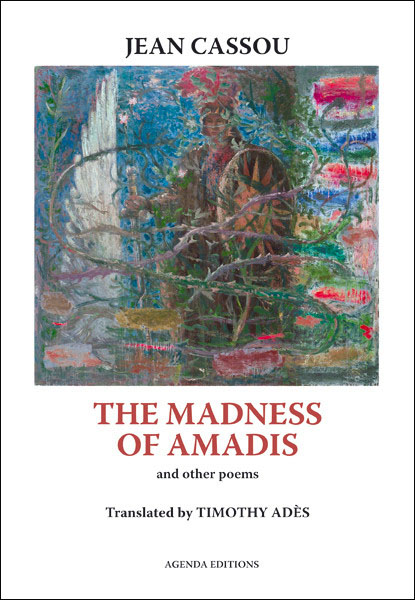
Cassou, The Madness of Amadis
Agenda Editions, 2008; bilingual; and other poems
Bilingual edition: French and English on facing pages
Jean Cassou, a war time Resistance leader in France, is still somewhat under-appreciated. These intriguing poems represent the body of Cassou’s work, following his famous 33 Sonnets of the Resistance (also translated by Timothy Adès), composed and memorised while Cassou was in prison, forbidden any writing materials.
Read praise for The Madness of Amadis on the critical appreciation page.
Contact me to find out where to buy a copy
The Big Story of the Lion
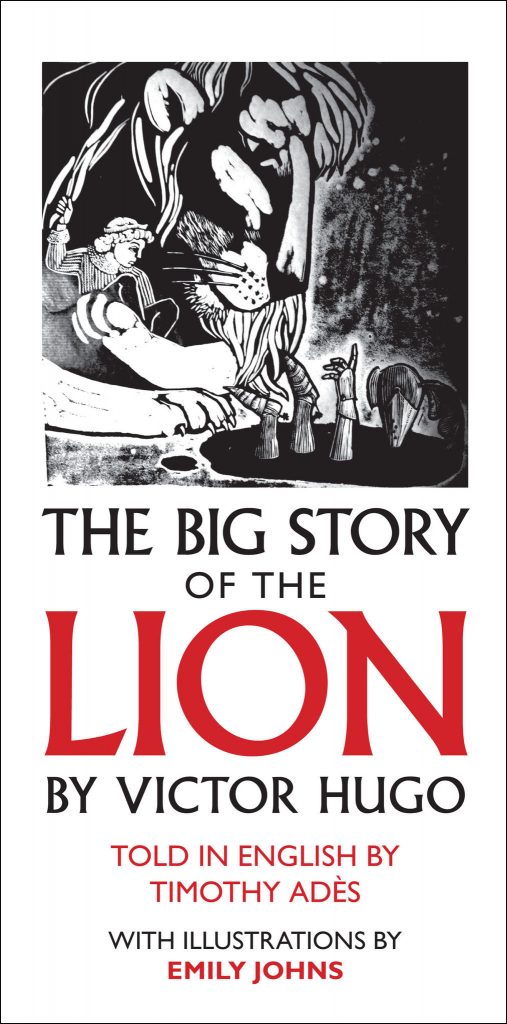
Victor Hugo
Hearing Eye, 2014: a poem from Grandfather: fold-out, with art by Emily Johns
A fold-out book, published by Hearing Eye in 2013. This is a poem from How to be a Grandfather translated by Timothy Ades with three illustrations by Emily Johns.
This beautiful produced concertina book of Victor Hugo’s wonderful long poem ‘The Big Story of the Lion’ was originally written for his grandchildren. Like nearly all his works, it was extremely popular in its time, and like many of his poems and novels, it has been translated into English.
Read praise for The Big Story of the Lion on the critical appreciation page.
Contact me to find out where to buy a copy
Florentino and the Devil
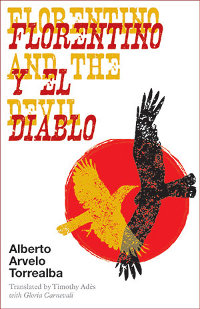
Alberto Arvelo, Florentino and the Devil
Shearsman, 2014: cattlemen of Venezuela, rapid-rhyming duel: bilingual
Florentino and the Devil, a famous poem in Venezuela, is the story of a poetic duel, a contrapunteo, between Florentino, a llanero (a cattleman of the plains) and The Devil. Singing to a traditional joropo accompaniment on harp, four-stringed guitar and maracas, the contenders improvise rapid rhymes, trading thrust and counterthrust like swordsmen, showing off their mastery and boasting of their accomplishments, each trying to reduce the other to silence.
Alberto Arvelo Torrealba, 1905-1971, was a poet in the tradition of the “Bards of the Plains”. Born in Barinas, he taught Spanish language and literature and published his first volume of verses, Música del Cuatro, in 1928. In 1940 the first version of Florentino y el Diablo appeared in his Glosas al Cancionero. A lawyer and educator, he became President of the State of Barinas and of the Technical Council of Education, a Judge of Appeal, Ambassador to Bolivia and to Italy, Minister of Agriculture and Stockbreeding, and a member of the Academia Venezolana de la Lengua.
“…it also occurred to me that, as with Marlowe’s Doctor Faustus, nothing works unless the humour works, and in Florentino it most emphatically does work. You get the feeling straight away of an extraordinary depth and resonance in this complex and down-to-earth poem.” – John Forth
Here at last is his Florentino y el Diablo in a remarkable English version. Gloria Carnevali, the former Venezuelan cultural attaché in London, has advised the award-winning rhyming translator Timothy Adès. Her commentary on the poem is a masterly pen-portrait of the world of the cattlemen on the great parched and flooded plains of Venezuela.
Read praise for Florentino and the Devil on the critical appreciation page.
Loving by Will

Dempsey & Windle, 2016: Shakespeare’s 154 Sonnets with my versions alongside, not using letter e. Much easier to follow!
Read praise for Loving by Will on the critical appreciation page.
Contact me to find out where to buy a copy